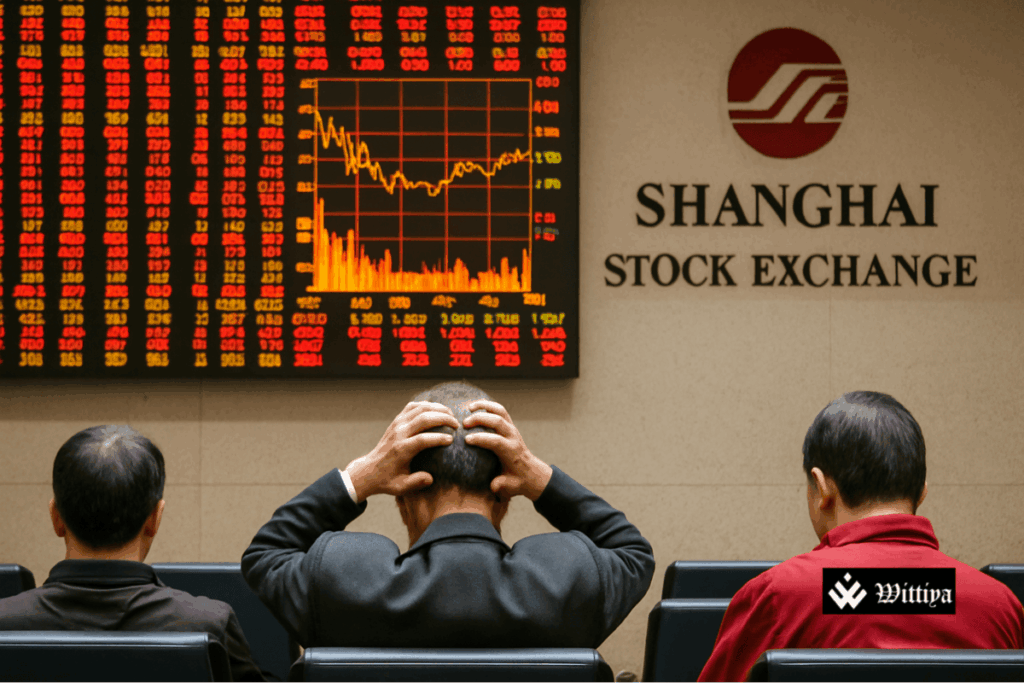China’s stock market dipped on April 30, 2025, ahead of the Labour Day holiday, as factory activity contracted due to the U.S.-China trade war, while Hong Kong stocks edged up on tech sector gains.
China’s major stock indices declined ahead of the Labour Day holiday, reflecting growing concerns about the country’s economic slowdown driven by the ongoing U.S.-China trade war. The data showing a sharp contraction in factory activity added to market anxiety. Hong Kong, however, saw gains supported by a rally in tech stocks and a rebound in property shares.
The Shanghai Composite Index dropped 0.2%, while the blue-chip CSI300 Index fell 0.1%. Hong Kong’s Hang Seng Index, by contrast, rose 0.5% for the session, although it posted a 5% loss for April—its steepest monthly drop in 16 months.
The contraction in China’s factory sector was the fastest recorded since late 2023, due to aggressive tariffs from the United States. This prompted speculation about further stimulus measures from Beijing. Nomura, a Japan-based financial services firm, estimated that the tariffs could impact 2.2% of China’s GDP. “Beijing has remained calmer than markets expected, but the risk is a worse-than-expected demand shock,” said Lu Ting, Nomura’s Chief China Economist.
Yingda Securities, a major brokerage firm in China, emphasized that Beijing may ramp up stabilization measures. Strategist Zheng Gang noted, “There will be more willingness for listed companies to distribute dividends and buy back shares.” The firm is recommending high-dividend blue-chips, consumer-related stocks, and tech shares.
Investor confidence in Chinese AI firms surged after President Xi Jinping, during a visit to Shanghai, emphasized the need for innovation in artificial intelligence. This led to a spike in shares of companies involved in AI development.
Additionally, Chinese ethane importers such as China Petroleum, Satellite Chemical, and China Sanjiang saw their shares climb after authorities waived the 125% tariff on U.S. ethane imports introduced earlier in April.
However, banking shares were under pressure both in mainland China and Hong Kong, following weaker-than-expected quarterly results from China’s Big Five banks, attributed to narrower margins amid a persistent economic downturn and real estate crisis.
The Chinese stock market will remain closed from May 1 to May 5 for the Labour Day holiday and will reopen on May 6. Hong Kong’s market will be closed on May 1 and May 5 due to public holidays.
